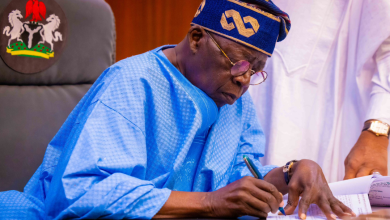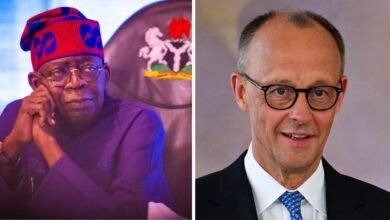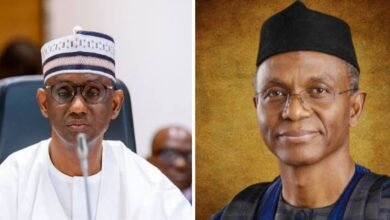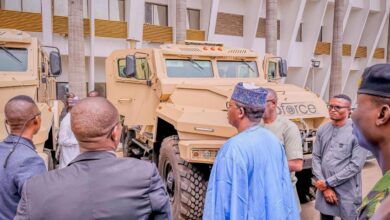News
Bola Tinubu’s Big Fives: The Five Biggest Controversies and Five Biggest Wins Two Years After
By Dayo Dare
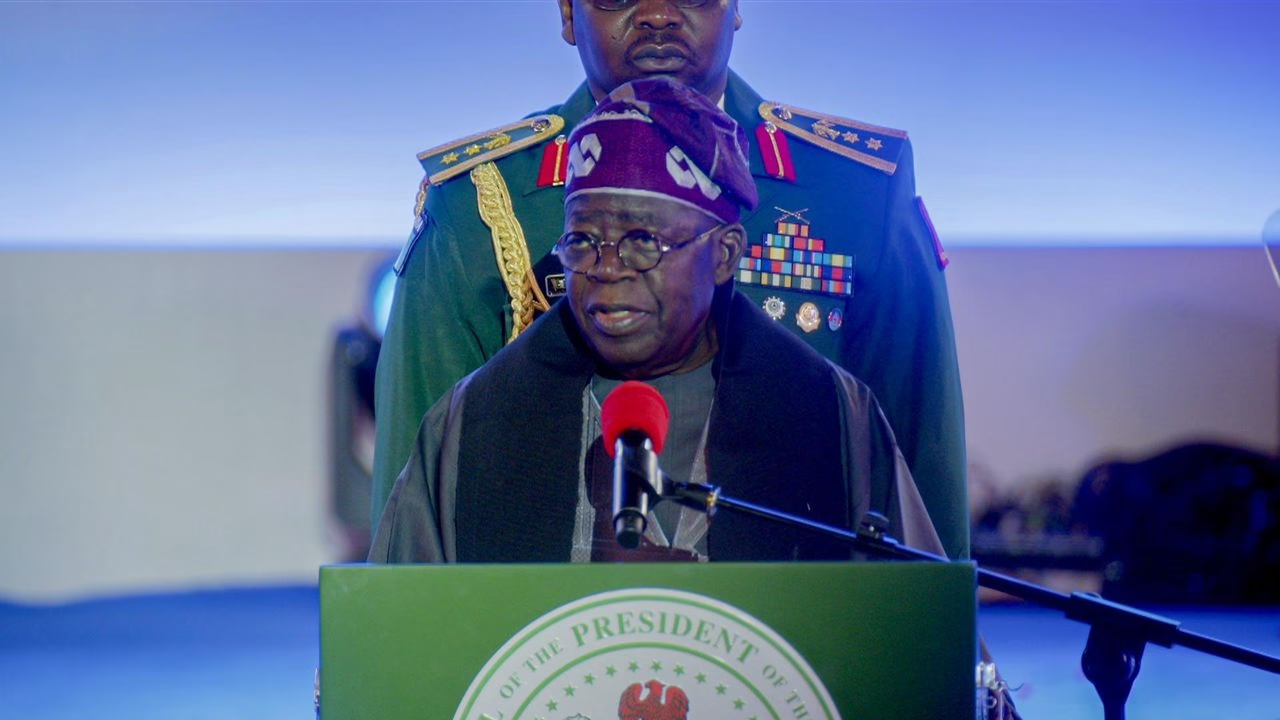
President Bola Tinubu recently marked his second year in office as Nigeria’s president, and it has been a rocky road so far. From bold reforms to political missteps, Tinubu’s administration has been defined by a series of highs and lows. While there have been moments that drew praise, several decisions sparked widespread backlash.
I was cut in the dilemma of whether to start from the controversies or his finest moments. But I think it is better to start with the former, then we can get to the latter: after a sour taste, let’s get a taste of honey. So let’s start from Tinubu’s five most controversial moments since he got into office.
1. ₦1.5 Billion Allocation to the First Lady’s Office
The Office of the First Lady is a position held by the wives of presidents, and it has always been an honorary role without any real power or constitutional standing. However, all that changed during Tinubu’s administration. The president received a lot of backlash when it was announced that ₦1.5 billion had been allocated to the Office of the First Lady for the purchase of cars. This move raised serious questions, as it was seen as an unnecessary drain on the public budget in a country already battling economic challenges.
It was gathered that the amount was stipulated in the ₦2.17 trillion supplementary budget sent to the National Assembly for approval. This spending triggered widespread criticism, especially from the public, who viewed it as a misappropriation of funds. However, there has been no rebuttal from the president’s office.
2. False Dubai Visa Ban Reversal
In 2024, Dubai announced a visa ban on 17 African countries, including Nigeria. The news came as a shock to many, straining relations with the UAE. But after a brief meeting with the leadership of the United Arab Emirates (UAE), the president’s aides announced the immediate lifting of the visa ban imposed by the Emirates.
Tinubu was initially applauded for his swift diplomatic move. Nigerians began celebrating the news, and airlines resumed ticket sales to the UAE. The Minister of Aviation Festus Keyamo confirmed that an agreement had been reached between President Bola Tinubu and UAE President Mohamed bin Zayed Al Nahyan during Tinubu’s visit to the UAE.
According to him, although the UAE had initially listed additional processes to be met before the ban could be officially lifted, the Nigerian government has since completed all processes. However, it was later discovered that the announcement made by the aides was false. Several international and local media organizations subsequently debunked the report
3. Repeated Misinformation from the Presidential Villa
The false news on the visa reversal ban is not the first time the President’s office had sent out false reports . The President’s communication team has consistently faced criticism for releasing inaccurate information to the press.
In September, the media team claimed that Tinubu was the first African leader to ring the closing bell of the National Association of Securities Dealers Automated Quotation System (NASDAQ). However, Jakaya Kikwete, former president of Tanzania, rang the NASDAQ closing bell in 2011.
In a statement, the presidency later described the error as “deeply regretted.”
Following that incident, the team also announced a $600 million investment by A.P. Moller-Maersk. However, the company later debunked the claim.
In 2024, the two main spokespersons, Bayo Onanuga and Ajuri Ngelale, issued conflicting statements on whether the president would address a joint session of the National Assembly. Mr. Onanuga had issued a statement claiming the president, alongside former Head of State Abdulsalami Abubakar, David Mark, and Femi Gbajabiamila, would address the joint session. However, Ngelale issued a counterstatement saying the president would not.
4. ₦15 Billion Allocation for a New VP Lodge
In the face of economic struggles and widespread poverty, the government’s decision to allegedly spend ₦15 billion on a new Vice President’s residence didn’t sit well with most Nigerians.
The project was framed by supporters as a necessary upgrade for hosting foreign dignitaries, but this luxury spending sparked outrage. For many, it was another example of misplaced priorities under President Tinubu’s watch.
5. Lagos-Calabar Coastal Road Controversy
This may be the biggest controversy of the President Bola Tinubu Presidency so far. The administration’s flagship Lagos-Calabar coastal road project, estimated at ₦15 trillion, was meant to be a generational legacy. Instead, it quickly turned into a controversial and chaotic work in progress.
The road alignment sparked public backlash after demolitions displaced residents and businesses across LagosHospitality hubs—like the Landmark centre that took six years to build— were bulldozed, and matters worsened when it was revealed that marine cables had been compromised in the process.
Although many were against this gross loss in properties, the administration stood on their reason for demolishment. They explained that the highway will open up a lot of opportunities for the country and unlock maritime trade and even boost tourism. Construction will also boost the rate of employment and the interconnecting highway will provide better logistics for transportation of goods. There is no denying that the investment is worth the backlash but many believe that the resource and funds being spent in this project could be better served in other sectors like education and health.
The President Bola Tinubu Administration’s Five Biggest Wins
Despite all the controversies and allegations, there’s no denying that President Tinubu’s administration has scored some significant achievements during his three years in office. Below are some of the big wins we feel have been the most ceremonial and significant since he got into office:
1. Job Creation and Financial Aid
During his time in office, Tinubu’s administration has created over 240,000 jobs through numerous enterprises and initiatives like the Nigerian Youth Academy which is a learning platform for youths to develop practical skills and promote digital empowerment. Also in the list of development programs are: the Labour Employment and Empowerment Program (LEEP), CNG powered Tricycle Empowerment Scheme that distributed 2,000 tricycles to young Nigerians, National Youth Agricultural Scheme,NDE Renewed Hope Employment Initiative and many more.
All these programs were created to encourage Nigerian youths. To support these initiatives, the President released over ₦570 billion to the 36 states to not only keep these. Programs running but also to help expand livelihood support for citizens. Additionally, 600,000 nano-businesses have benefited from the administration’s nano-grants.
2. Increased Minimum Wage
With the removal of fuel subsidies came an increase in fuel prices, which in turn affected the cost of foodstuffs and other items. In light of this, the president’s administration signed into law the new National Minimum Wage of ₦70,000 and facilitated the payment of ₦1 billion each to large manufacturers.
For now, the increase is yet to be enacted in many states—except in Oyo state—,with some rumored to only add 5,000 naira to current pay. However, way before this new update, some states have had varying increases in their pay to government workers. The idea is to help workers meet up with their daily needs.
The Nigerian Labor Congress (NLC) view this increase as a good sign although it’s way below their initial request of 250,000 naira however, the government’s delay in the implementation of this new policy has left many doubtful.
3. Removal of Tariff Duties and Procurement of Farming Equipment
To ease the burden on Nigerians and boost food production, the government scrapped tariffs and import duties on essential items like rice, wheat, maize, sorghum, drugs, and medical supplies—for a six-month period.
Farmers are also receiving a much-needed push through fresh incentives aimed at ramping up food output and keeping prices within reach. Billions of naira worth of mechanized farming equipment have been imported from countries like the U.S., Belarus, and Brazil. Out of 10,000 tractors expected, 2,000 have already arrived and been distributed.
4. Student Loan Scheme
The student loan scheme is finally gaining traction, with over ₦95 billion approved so far. More than 600,000 young Nigerians have already benefited, and nearly ₦75 billion has been disbursed through NELFUND. It’s a long-overdue step toward making education more accessible.
5. Increase in Government Revenues
Government revenue has more than doubled under Tinubu’s administration, increasing by over ₦9 trillion in the first half of 2024 compared to the same period last year. That financial boost is being funneled into major infrastructure projects—from the Lagos-Calabar Coastal Highway to the Sokoto-Badagry corridor.
Oil production is also on the rise, hitting 1.7 million barrels per day. Two major foreign investments worth over $500 million have been signed, signaling renewed confidence in the sector.
To reduce fuel costs and transition the country toward more sustainable energy, the Compressed Natural Gas (CNG) initiative was launched for the transport sector. According to Tinubu, it is projected to save over ₦2 trillion monthly that would otherwise have gone into petrol and diesel imports.
Three years into Bola Tinubu’s presidency, the tension between promise and controversy remains undeniable. His administration has rolled out bold reforms and scored key wins in areas like job creation, education, and energy, but it has also been marred by communication blunders, allegations of fiscal recklessness, and unpopular spending decisions. As Nigeria looks ahead to the remainder of his tenure, Tinubu’s next steps will be crucial in shaping both his legacy and the nation’s trajectory.

